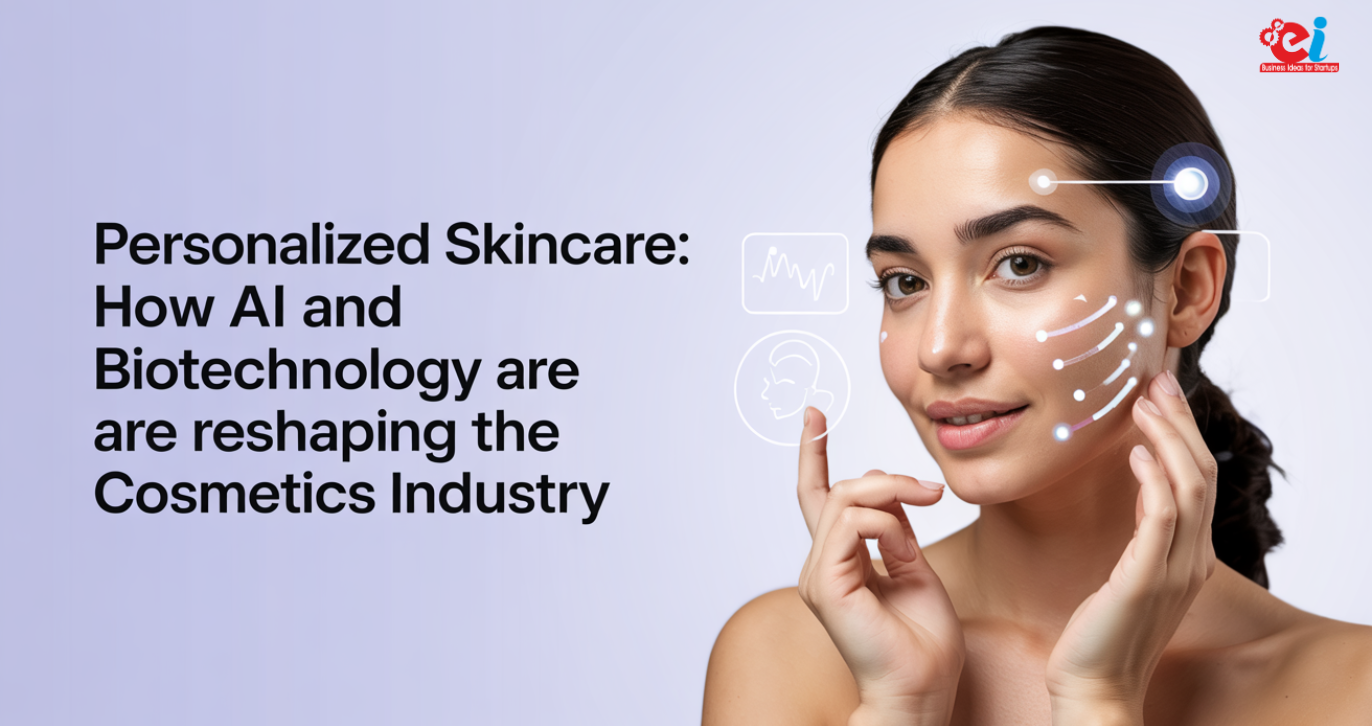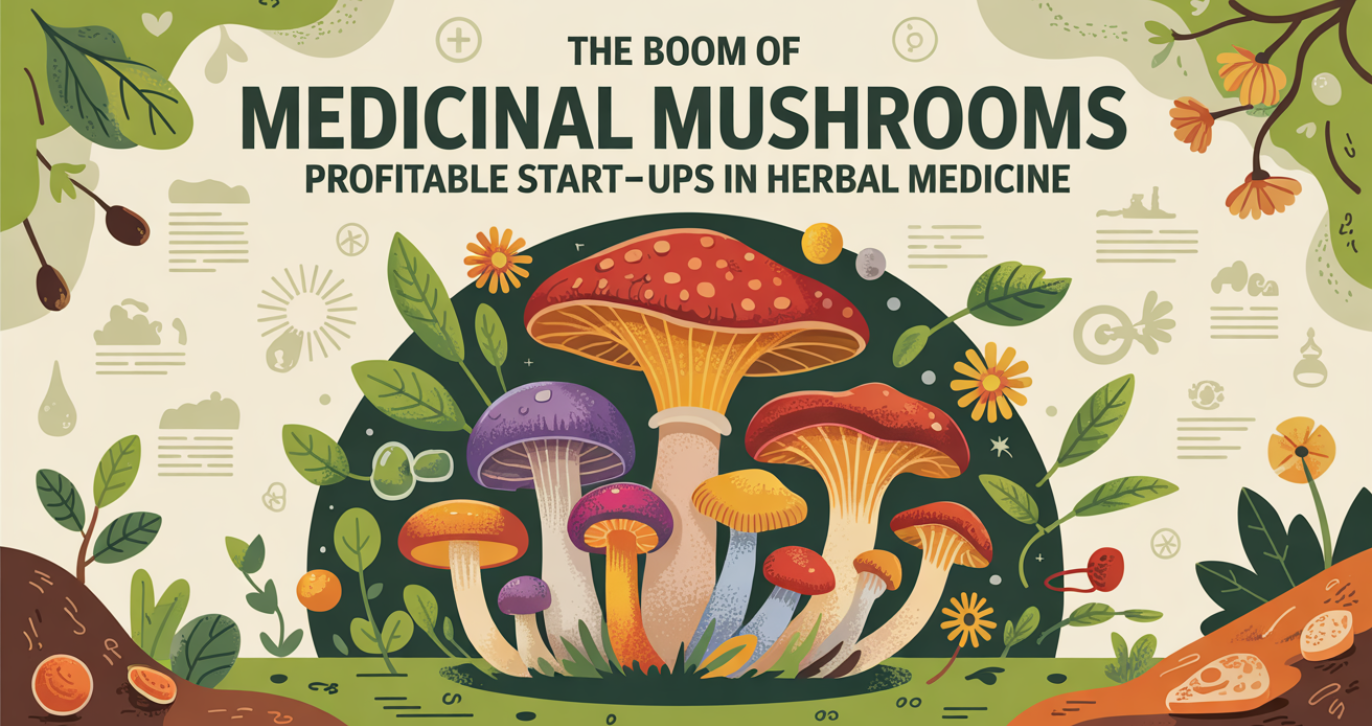Well, it seems like all the AI and biotechnology have nice handmade crafts for the beauty industry. Personalized skin care is now seen by consumers as cutting-edge technology. This article explains how AI and biotechnology are completely revamping skincare. It takes personalization to a new level and promises scientifically validated solutions to beauty.
A New Era for Personalized Skin Care
Personalized skin care is a new way of thinking for consumers regarding skin treatment. Whereas a standard product offers a traditional formulation, personalized skin care will factor in an individual’s lifestyle. This is a paradigm shift in consumer demand for efficiency, transparency, and measurable results in beauty. The market for personalized skincare is expected to grow exponentially due to its capability to solve very specific problems with pinpoint accuracy.
How AI is Changing Skincare
AI has changed the game in skincare, making diagnostics and formulations easier and the consumer experience better. Here are some important developments that AI brings to the table:
1. Skin Analysis through AI-Powered Apps
The diagnosis and recommendations for required treatments for skin conditions are done through uploaded selfies in AI applications .
With this, one does not even have to go out and visit a clinic; the consumer can use it all at home.
This has seen brands such as Neutrogena and Olay incorporate this into their marketing strategy.
This is enabled using deep learning algorithms trained on millions of images of skin.
With such data, the AI is going to detect minor events like the first early signs of aging that it will not be able to see with the naked eye.
This allows for counteraction and methods of skin care that can prevent damage in the long term.
2. Customized Product Formulation
AI allows brands to make personalized formulations by analyzing large datasets of ingredients, skin types, and user preferences. Some companies even let customers list their skin issues so that an AI algorithm can automatically create a unique product mix for them.
Read our Blog: How to Start a Successful Herbal and Organic Cosmetics Brand
3. Virtual Try-On Technology
Through augmented reality driven by artificial intelligence (AI), virtual testing of skincare and makeup products enhances consumers’ shopping experiences.
The technology allows consumers to envision how different products will suit their skin before the purchase.
It provides a huge boost to the trend of digital beauty consultations.
AI-driven systems can provide personalized advice based on individual skin tone, texture, and preferences.
4. Predictive Analytics for Skincare Trends
AI uses social media trends, customer reviews, and dermatological research to forecast future predisposing requirements and preferences for skin care. This allows brands to be proactive in their innovations and cater to changing consumer demands. Predictive analytics enables industries to be ahead of the curves by predicting new skin care concerns ahead of their widespread acceptance. By looking at consumers’ behaviour alongside scientific developments, AI can lend its assistance to help brands create products addressing specific needs even before these are widely acknowledged in the market.
Skin Care Biochemistry Approach
Biotechnology has indeed helped develop safe, effective, and sustainable ingredients for cosmetic use. Prominent biotechnologies are as follows:
- 1. DNA-Based Skin Care Solutions
Genetic testing opens new horizons of personalized information regarding skin health and skin predispositions.
DNA analysis is mostly used in determining which products would fit an individual based on these genetic factors by many companies.
DNA tastings run hyper-personalization of skin care solutions that slow aging and improve skin resiliency.
2. Microbiome-Friendly Skincare
The intelligent balancing of skin microbiome, a microbiome playing an important role in skin health.
The products are used to deal with skin problems like acne, sensitivity, irritation, and so on.
Eczema, rosacea, and acne are some of the skin issues related to an imbalanced skin microbiome.
Biotech companies are working on a proprietary skin-care brand that will contain beneficial bacteria for balancing and protecting the skin.
3. Lab-Grown Ingredients
Laboratory biotechnology applies such techniques to enable the lab production of collagen, hyaluronic acid, and plant-based retinoids.
Therefore, to be purer, stronger, and more sustainable, bioengineered ingredients will top any synthetic or animal-derived ones.
4. Innovations in Sustainable and Vegan Skincare
Biotechnology has brought sustainable and cruelty-free options in skincare that minimize animal testing and destruction of nature, bringing bioengineered ingredients and creating beauty solutions that are ethical and eco-friendly. Consumers demand more skincare products with the same good values as theirs, making one ask for vegan formulations through biotechnology. Companies are countering this trend by replacing the ingredient with plant-derived inputs, which promise to deliver the same benefit.
Also read: Herbal Cosmetics – Successful Industry in the Modern Era.
Prospects for AI and Biotechnology in Skincare
With the push of this very intersection of AI and biotechnology, the personalization of skincare will continue to advance. Some of the trends we may see emerging are:
- Smart Skincare Devices: AI-based beauty gadgets, such as smart facial masks or serums that change with skin conditions in real time.
- Skin Health Monitoring in Real-Time: Wearable devices that can look after hydration, pH levels, and environmental stressors and suggest instant skincare.
- Dermatology Consultations Support by AI: Telemedicine platforms wherein AI aids dermatologists to diagnose and prescribing skin treatments on video calls.
- Next-generation Bioengineered Anti-aging Solutions: Stem cell research and gene editing could disrupt the skincare field by tackling the aging process at a cellular level.
As AI systems become increasingly intelligent, skincare recommendations will become refined and tailored using real-time data gathered from environmental conditions and lifestyle factors. These biotechnological innovations will continue maximizing and designing ingredients toward effectiveness and sustainability.
Concluding Thoughts
AI and biotechnology are transforming the cosmetic industry by rendering hyper-personalized skincare solutions anchored in science and technology. This implies that the two avenues under consideration will not only equip products for efficiency but also contribute significantly towards the moral and sustainable beauty conundrum. It, therefore, follows that as AI and biotech continue to unfold, they shall promise customization, efficiency, and innovation of skin remedies even more- catering for everyone.
At the forefront of the digital and biotechnological revolution, the skin-care industry has promised to bring consumers closer to perfect skin through reliable insights and lab-engineered ingredients. The embrace of these innovations by brands paves the way for safer, more effective, and environmentally responsible beauty solutions that address individual needs and requirements.










